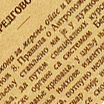‘ПОРОЗНА’ ДРЖАВНОСТ VERSUS ТВРДЕ ГРАНИЦЕ: УТИЦАЈ ИСТОЧНО-ЕВРОПСКОГ ПРОШИРЕЊА ЕУ НА РУМУНИЈУ И ЈУГОСЛАВИЈУ
’FUZZY’ STATEHOOD VERSUS HARD BORDERS: THE IMPACT OF EU EASTWARD ENLARGEMENT ON ROMANIA AND YUGOSLAVIA
Author(s): Judy BattContributor(s): Milan Brdar (Translator)
Subject(s): Regional Geography, Political history, Evaluation research, Post-Communist Transformation, EU-Accession / EU-DEvelopment
Published by: Српско социолошко друштво
Keywords: EU; CEE; regionalization; frontiers; statehood; Serbia; Romania;
Summary/Abstract: Topic of the article is the apparent contradiction between the Central and East Europeans’ enthusiasm for ‘returning to Europe’ after 1989, and their equally powerful affirmation of ‘national self-determination’, has frequently been remarked by western commentators. In the first part of this paper, author sets out the ideas of some key CEE political thinkers who grappled with the problem of statehood in this peculiarly vulnerable part of Europe from 1848 through to the inter-war period of the last century. These ideas in author’s view are of more than historical interest, not only because the same basic issues confront the post-communist reconstruction of states in CEE, but also because of their wider potential relevance for thinking about contemporary European statehood within the EU context of deepening internal integration and expanded external responsibilities.
Journal: Социолошки преглед
- Issue Year: 36/2002
- Issue No: 1-2
- Page Range: 17-42
- Page Count: 26
- Language: Serbian

